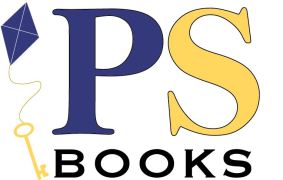 A shark attack, a starlet in hiding, a mysterious black box. The opening pages of Stephen Stark’s The Final Appearance of America’s Favorite Girl Next Door have all the makings of a Hollywood page turner, but the novel’s style places the author in a far more literary league.
A shark attack, a starlet in hiding, a mysterious black box. The opening pages of Stephen Stark’s The Final Appearance of America’s Favorite Girl Next Door have all the makings of a Hollywood page turner, but the novel’s style places the author in a far more literary league.
The novel is a hefty one in terms of content as well as form. Weighing in at well over 600 pages (in 12 pt. Garamond, no less!), The Final Appearance of America’s Favorite Girl Next Door touches on a wide range of topics — show business, fame, predestination, love, reality, lucid dreaming, and standup comedy, to name just a few. To tackle these subjects, Stark offers the reader Ellen Gregory, a thirty-something standup comic turned TV superstar whose recent run-in with a murderous stalker leaves her questioning everything about the world she’s grown used to. That her world consists largely of hype and rumors only complicates matters for the increasingly cagey celebrity.
Ellen’s Hollywood narrative alone would certainly provide enough material for a provocative examination of fame and its trappings, but Stark sweetens the deal by adding virtual reality to the mix. Shortly after escaping from the confines of her successful sitcom, Ellen falls for a computer programmer whose experiments have opened a doorway into a mysterious dimension that isn’t quite real but is, in some ways, more real than real. When Michael falls prey to a vicious attack, Ellen’s world turns upside down, and her entire world — not to mention her sense of self — goes up for grabs.
Stylistically, Stark’s writing evokes a diverse range of contemporary authors. From the more “literary” camp, there’s Jennifer Egan and Don DeLillo, while the elements of science-fiction present in the novel call to mind William Gibson’s interest in virtual reality and Jamil Nasir’s examination of lucid dreaming in The Houses of Time. Complex, ambitious, and genre-bending, The Final Appearance of America’s Favorite Girl Next Door is a philosophical page turner that dares to ask what it means to really know someone.
–Review by Marc Schuster
